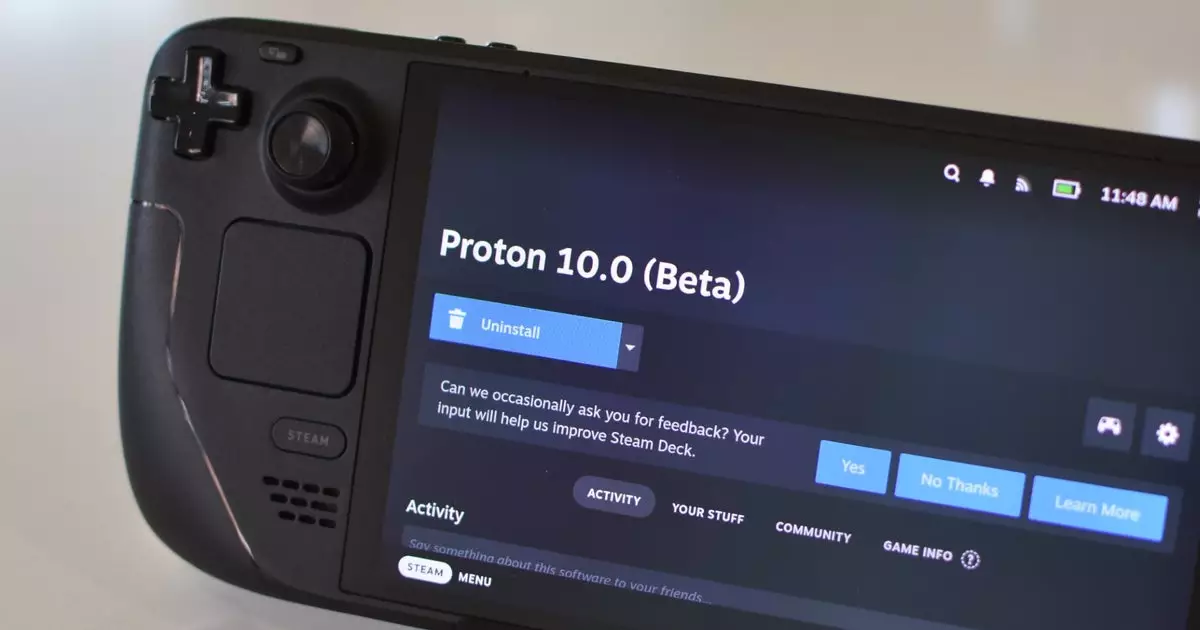The gaming landscape on Linux has witnessed a significant transformation over the past few years, largely fueled by the efforts of Valve and CodeWeavers through their compatibility layer, Proton. With the recent release of Proton 10.0 in beta, the momentum continues to build, offering improvements that extend far beyond mere numerics. The gaming community has eagerly awaited this update, and it embodies a ton of enhancements that promise a smoother gaming experience on the Linux platform, particularly for the Steam Deck. The implications of this development are monumental, not only allowing gamers to experience high-profile Windows titles but also broadening Linux’s appeal as a legitimate gaming platform.
Addressing Major Compatibility Issues
One of the most exciting aspects of Proton 10.0 is its ability to bridge the gap between popular Windows games and the Linux ecosystem. The update targets major titles like “Assassin’s Creed Shadows,” “Grand Theft Auto V Enhanced,” and “XCOM 2,” which were previously plagued with compatibility issues. This direct approach to resolving specific game crashes or performance hiccups represents a monumental step forward. For individuals who advocate for Linux as a viable gaming platform, the ease with which they can indulge in these experiences has now reached a new high.
Additionally, the update brings capabilities for previously unsupported titles—including “Microsoft Flight Simulator 2024” and “Batman: Arkham Asylum Game of the Year Edition.” As these games show up as unsupported on their respective Steam pages, the significance of their upcoming compatibility cannot be overstated. The potential for previously inaccessible gaming worlds to become fully operational is not just a minor upgrade; it’s a testament to the strides that Proton has been making. During my tests, launching “Arkham Asylum” on Proton 10.0 was a revelation, finally allowing me to dive into the game without the frustration of runtime errors or launcher crashes.
A Broader Focus Beyond the Steam Deck
Proton 10.0 doesn’t just cater to Steam Deck users; its improvements extend to Linux desktop gamers as well. A major focus on stabilizing games like “Stalker 2,” “Marvel Rivals,” and “The Finals” that were crashing on Intel GPUs demonstrates a commitment to enhancing the overall gaming experience on Linux systems. This broader focus is crucial as it signals to developers and gamers alike that Linux is becoming an increasingly robust platform capable of delivering high-quality gaming experiences.
The steps taken to address issues for a range of users also showcase a significant collaboration with the community. There has been a lot of chatter about how sometimes Proton Experimental has contained fixes that arrived before the official releases. However, the polished nature of the beta builds in Proton 10.0 remains an undeniable advantage, catering to gamers who prefer stability and reliability over potentially risky custom solutions found in unofficial builds like Proton GE.
Seamless Installation and Accessibility
Another impressive feature of Proton 10.0 is its ease of installation. Gamers can quickly grab the beta version right from their Steam library, navigating the process as effortlessly as downloading a new game. This serves as a crucial point for those hesitant about entering the extensive world of Linux gaming, as Valve has made it incredibly simple for newcomers to explore. By integrating developers’ insights into a user-friendly interface, Proton 10.0 paves the way for a broader audience to engage with gaming on Linux.
In an era where gaming fuelled by community and collaborative engagements sets the tone for innovation, Proton’s approach to making games more accessible cannot be understated. Users are encouraged to try out the beta, resolving previous compatibility issues while enjoying the ease of maintenance that comes with it. Furthermore, the beta works seamlessly with the current stable branch of SteamOS, negating the need for a switch to potentially unstable versions—a move that underlines Valve’s commitment to providing reliable and enjoyable gaming experiences.
Proton 10.0 represents not just an incremental update, but a monumental leap forward for Linux gaming. The promises of improved compatibility, stability, and ease of access make it a turning point in the conversation surrounding Linux’s place in the gaming world. As the gaming community watches closely, the potential for future advancements looks exceedingly bright.

